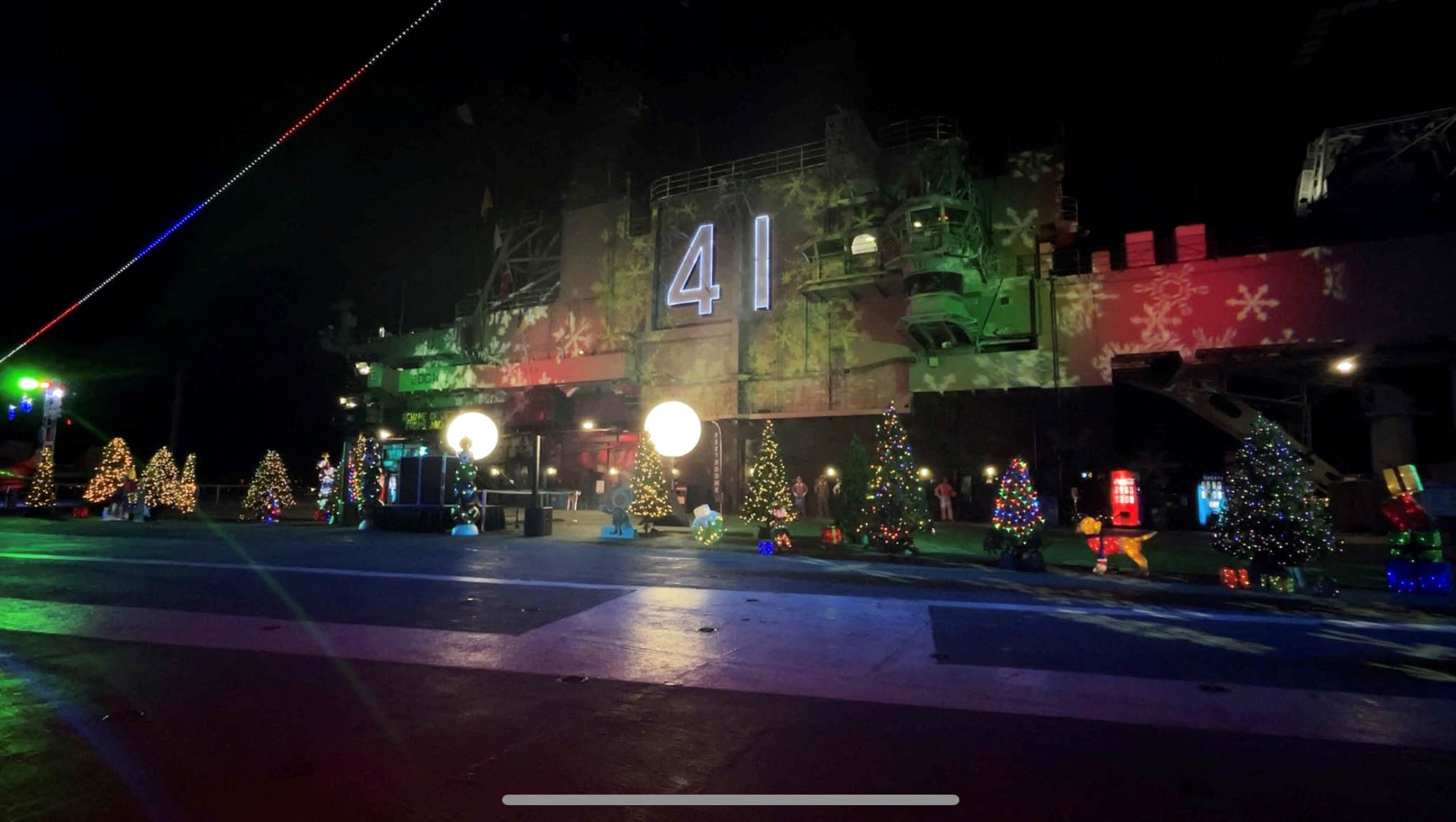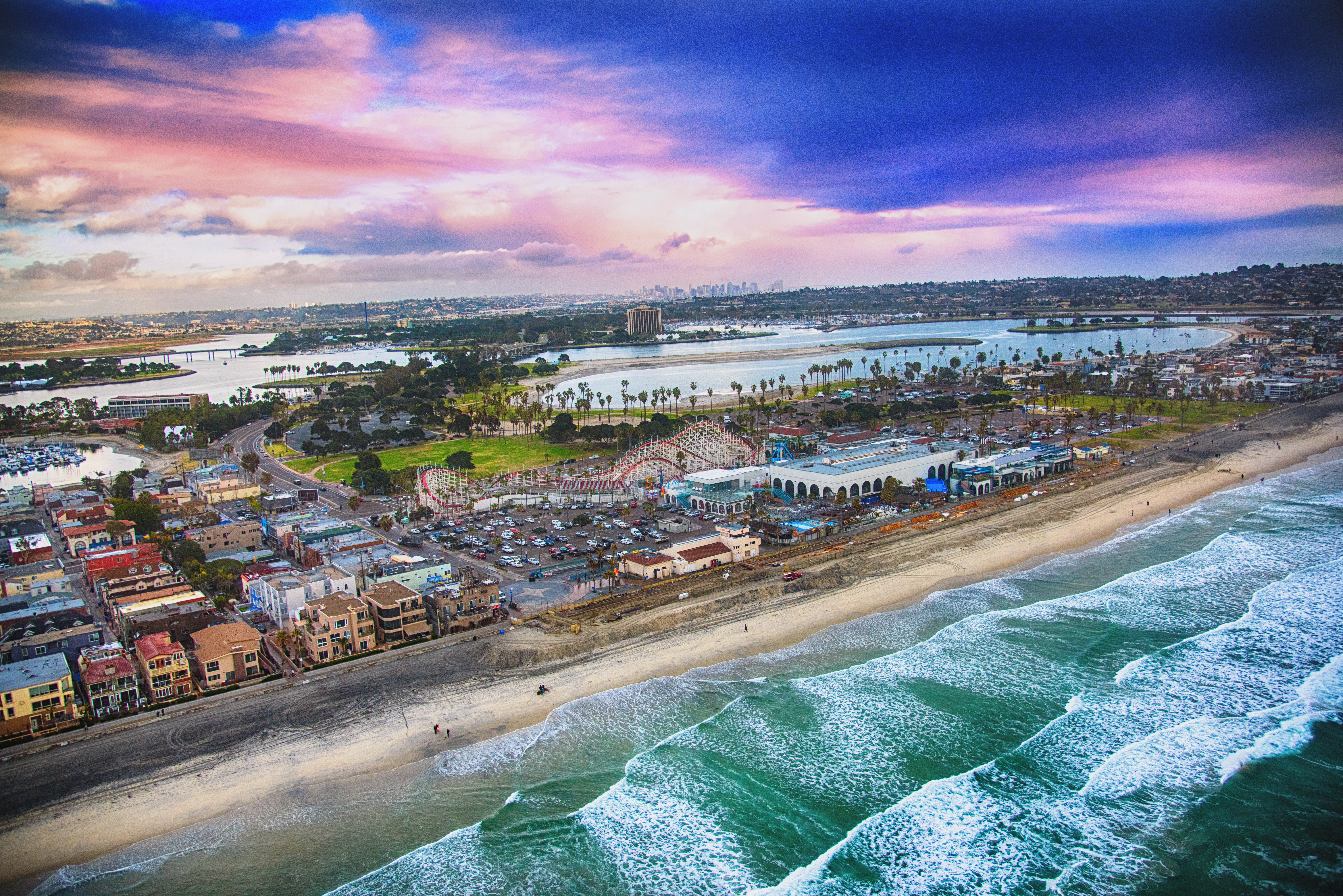Hundreds of pro-Palestinian supporters marched through the UC San Diego campus Wednesday to protest the war in Gaza and to call on their university to divest from companies supporting Israel.
The event was also organized to commemorate the 76th anniversary of what is called "the Nakba," the Arabic word for catastrophe, which commemorates the mass displacement of about 700,000 Palestinians during the 1948 Arab-Israeli war, according to the United Nations.
Jews escaping antisemitism and persecution in Europe had sought for decades to establish a Jewish state in the place they considered their ancestral homeland. In November 1947, after World War II and the Holocaust, the U.N. General Assembly passed a resolution to partition Mandatory Palestine, controlled by the British, into two states – one Arab and one Jewish.
The majority of Palestinians and the wider Arab world rejected the resolution. After Israel declared independence on May 14, 1948, and the departure of British forces, armies of neighboring Arab nations invaded, spurring the war.
Get top local stories in San Diego delivered to you every morning. >Sign up for NBC San Diego's News Headlines newsletter.
The march at UC San Diego came the day after protesters and counterprotesters faced off on campus when a Hamas defector turned Israeli informant, Mosab Hassan Yousef, spoke at the school as part of the Tritons for Israel student group's Peace in Israel Week, according to a UC San Diego spokesperson.
The controversial speaker known as the "son of Hamas" converted to Christianity and moved to California in 2007. The London Telegraph reported the following year that he was living in San Diego and attending a church in Pacific Beach.
Local
"While the ideas and thoughts expressed by this speaker do not reflect the views of UC San Diego, the campus supports the right to free speech, which is one of the cornerstones of our university," a school spokesperson said in a statement. "We encourage and promote civility and respect in every exchange in accordance with our Principles of Community and remain fully committed to protecting the physical safety of all individuals in our community."
The Peace in Israel Week is held annually following the Muslim Student Association's Justice in Palestine Week, the university added.
The Council on American Islamic Relations was also on campus Tuesday to decry a rise in Islamaphobia "not seen since the post-9/11 era," according to a spokesperson at a news conference.
The group was met with pro-Israeli counterprotesters and some minor clashes occurred, video showed.
The Anti-Defamation League also responded to the marches on campus with their own fears of a rise in antisemitism on college campuses since the Israel-Hamas war began on Oct. 7, 2023, when some 1,200 people were killed in Israel during Hamas’ cross-border raid, with thousands of militants rampaging across southern Israeli military bases and small communities next to the Gaza border. The attack sparked the war, now in its eighth month, during which more than 35,000 Palestinians — many of them women and children — have been killed, according to local health officials.
"Every year, young Jewish people go to college with the hope that their Jewish identities, including their connection to the Jewish state, will be welcome on campus. The sense of community is increasingly at risk as concerning anti-Israel incidents increase. University leaders must respond effectively to this hatred so that Jewish students feel safe," The ADL said in a statement, in part.
UC San Diego Encampment and Unrest
Last week, tensions flared at UC San Diego when law enforcement cleared a "Gaza Solidarity" encampment on campus and arrested 64 people, 40 of whom were students, according to the university.
Among that demonstration was a local imam who said he was pepper-sprayed during a confrontation.
"You point your guns in the faces of students, so I started shaming them and telling them that it's not acceptable, and I was asking them to put their guns away," Taha Hassane with the Islamic Center of San Diego said. "At a certain point, one of the sheriff officers got his pepper spray and sprayed me straight in the eyes and in the face."
The university released a statement responding to the demonstration that echoed previous statements, saying the school supports free speech but is committed to safety.
“Dialogue, free speech and academic freedom are cornerstones of our university, and UC San Diego fully supports the right to peacefully protest and express views on campus; however, we are also fully committed to protecting the physical safety of all individuals in our community and upholding the rights of all students, faculty and staff to continue to work, study and carry out the academic mission of the university without undue disruption,” the statement read.
UC Irvine Protest on Wednesday
Meanwhile, to the north of San Diego County, a weeks-long pro-Palestine protest at UC Irvine demanding the university divest from Israel over the Hamas war took a tense turn Wednesday when protesters blocked the entrance to the physical sciences building in an apparent occupation of the facility.
The protesters surrounded the physical sciences lecture hall about 2:30 p.m., prompting campus police to request aid from Orange County sheriff's deputies and Irvine police, among other neighboring agencies, said Tom Vasich, a university spokesman.
Students and educators were also warned to avoid the area, Vasich said.
The protest, which includes an encampment much like what has done on campuses across the country, including at UC San Diego, was largely peaceful as the students have been negotiating with university officials.
The situation has intensified over the past week, particularly after some protesting students received suspension notices from the university, including some who were involved in negotiations with UCI administrators.
In a statement posted on social media Wednesday, the UCI Divest protest group said it is "reclaiming the university for Palestine and for the people."
"Exactly one week ago to the day, UC Irvine issued temporary suspensions to ban students in the encampment, including the majority of the student negotiation team," according to the group. "Students barred from returning to their own campus residence halls cannot come to campus at the peak of midterms and finals, and are already facing the emotional toll of seeing the university militarize itself before it even accepts ending the genocide and killings of the students' family members and friends."
Numerous tents were erected around the physical sciences building, and banners were hung from the building's balcony listing the groups demands for divestment. Some small skirmishes were visible on the outskirts of the encampment perimeter as at least one counter-protester tried to confront participants.
A large number of law enforcement descended on the campus, and officers and deputies in riot gear stood by in formation outside the encampment. As of late afternoon, law enforcement had not made any advance on the protesters.



